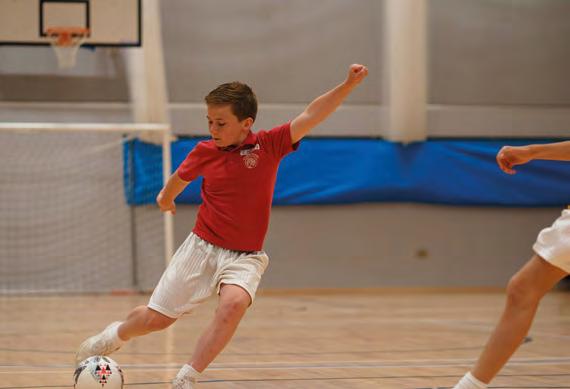





























Happy New Year from all of us here at Families! We wish you the very best for the months ahead.
If you’ve abandoned New Year resolutions already, then let us re-inspire you! This really is a great time of year to focus on how to get healthier – but it’s difficult to do it on your own. So how about taking on a health challenge as a family instead so you can motivate each other? Whether it’s a new challenge, adopting strategies to alleviate anxiety or trying a new life hack, this issue offers you lots of food for thought. A huge welcome to our new young reporters, Minnie and Lily, who have written helpful reviews on their recent family days out and have given each place a star rating. Claire from Chesham has kindly visited more local places with her little ones and shares her opinions with us. Keep hold of our What’s On guide for more days out inspiration.
Enjoy!

Wear A Hat Day, an iconic and fun annual event, is one of the UK’s most popular and family-friendly charitable fundraisers and it’s happening again on Friday, 31 March! Running for more than ten years, this event raises millions for vital research into brain tumours – the biggest cancer killer of children and adults under the age of 40.
Wear A Hat Day events help children explore their individuality and creativity, whilst learning to work together and think of others – in a really fun way. Participation fosters friendships, creates better local and school communities, offers unique learning opportunities and provides new ways for children to explore ideas around different life experiences, all while giving hope to brain tumour patients and their loved ones.
Join this event, as a family or by asking your local school to take part. Register now for more information and your FREE fundraising pack. Just use the quick and easy webform at: wearahatday.org

• Families Chiltern magazine reaches over 40,000 readers across Buckinghamshire. It can be found in local schools, nurseries, playgroups, classes, cafes, supermarkets, leisure centres & more.
• Most of our advertisers report an excellent response and never miss an issue. To find out more, call 01296 586586 or email: editor@familieschiltern.com


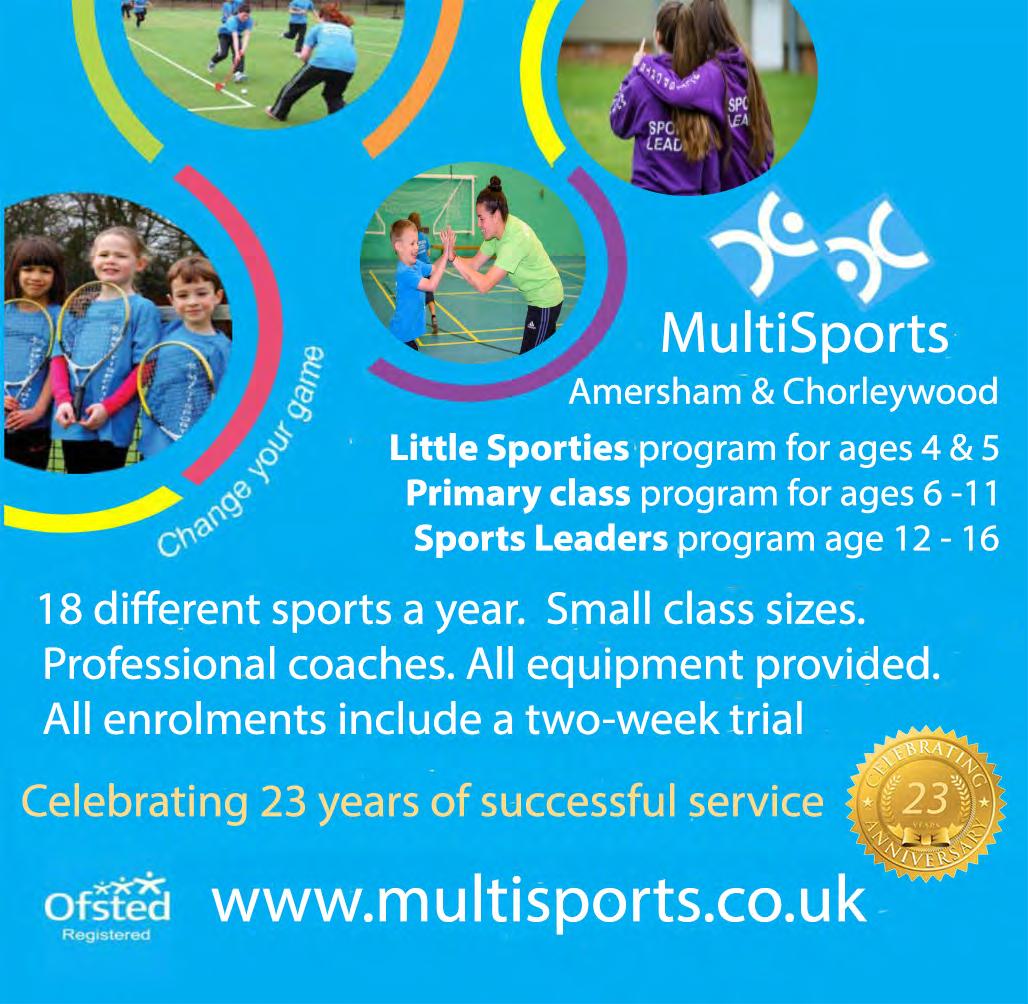
Your Amazing Brain: A User’s Guide is an exciting new hands-on exhibition at Discover Bucks Museum in Aylesbury that will show you just how amazing our brains really are. From emotions to our senses, you will find out how your brain interprets what it sees, hears, smells, and feels.
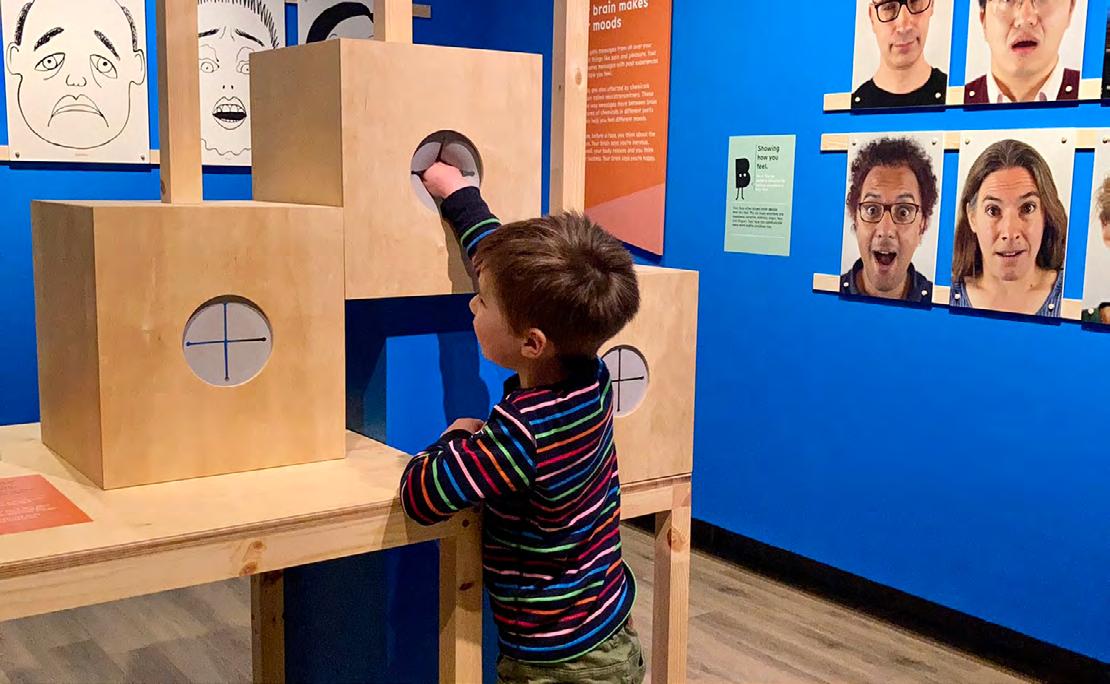
This family-friendly exhibition will take you on a journey inside your brain, to find out just what makes you, you!
With over 15 interactive puzzles and ‘mind-bending illusions’ it will show you how your brain can play tricks on you. Get ready for some ‘WOW’ moments that might leave you questioning what you thought you knew. With hands-on activities that all the family can take part in, this exhibition will appeal to visitors of all ages. You might not think science is for you, but they aim to show you it’s for everyone! Your Amazing Brain runs until 15 April 2023. For more information visit: < discoverbucksmuseum.org
Eco-Homemaker offer tried and tested eco-friendly home, maternity and baby products. The online retailer was launched by husband-and-wife team Alex and Victoria Harris from Chalfont St Peter.

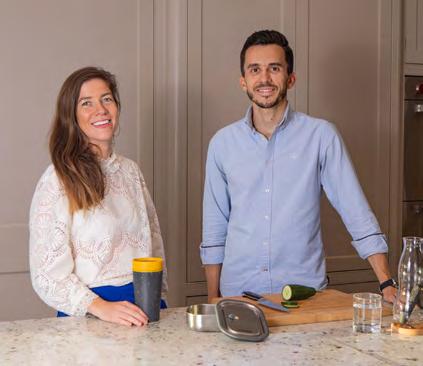
Their latest concept ‘Eco Swap Club’ is a curated subscription box offering their customers an easy way to try out their family’s go-to eco swaps. They’ve designed four themed boxes showcasing their 18 favourite swaps delivered every quarter. Victoria explained, “we are really excited to be able to bring families an easy way to try out our favourite eco-swaps for themselves without needing to think of which combination of products to go for and whether they will work.” They are offering 10% off with code CHLT10 and a 20-minute online consultation with the founders, offering you bespoke advice on swaps within the home. More at: < eco-homemaker.com/ chilterns
Cuteness is coming this February half term to Odds Farm Park, near Beaconsfield, between 11 and 19 February. Billed as the ‘cutest event of the year’, the farm’s annual ‘Lambwatch’ event is perfectly timed for the half term holiday where guests will be able to see new lambs born over the course of the nine-day break. Visitors will have the opportunity to learn all about lambing and see newborn lambs take their first steps. Assistant General Manager, Louise Winslow said: “We love February half term on the farm! With new lambs expected to arrive throughout the school holidays, it really feels like spring is on the way. Back by popular demand is our lamb-themed trail around the farm which gets families exploring the rest of the farm with a prize at the end for all the children who complete it. We will also have our arts and crafts marquee set up and we can’t wait to see everyone’s b-ewe-tiful creations.” < oddsfarm.co.uk/lambwatch

Thousands of mothers sporting spooky costumes descended on central London at the end of October last year to demonstrate against the cost of childcare, which has forced some to leave the workforce. Similar marches took place in other cities across the UK. Data indicates that for many women, deciding whether to return to work after having a baby – or even whether to have a child at all – has become a question of cost.
The protest was demanding increased funding for childcare, properly paid maternity and paternity leave and flexible working.


Compared to other countries, the UK’s childcare costs are among the highest. According to data gathered by the Organisation for Economic Co-operation and Development, the net costs in the UK amount to around twenty nine percent of the average wage, compared to Germany’s one percent and France’s fourteen percent.
More info at: < pregnantthenscrewed.com


Leading toy company, Fisher-Price™ has teamed up with a leading support charity, Family Action, to launch the Family Action Play Programme for children ages 0 to 5, to help with their early childhood development. The programme is available online and is free to families. It shares early years expertise, practical tips and simple activities for families looking for quick and easy ideas to build play into the everyday and help their children thrive.

The programme includes five modules that tackle the ‘why’ and ‘how’ of play and its importance in early childhood development and has been developed drawing upon expertise from the Fisher-Price™ Play Lab and from the practice-based experience of Family Action staff. To access the FREE Family Action Play Programme, visit: < bit.ly/PlayProgramme

From 6 to 12 February, families across the UK are encouraged to take part in Children’s Mental Health Week organised by charity Place2Be, with the theme Let’s Connect.
Let’s Connect is about making meaningful connections for all, during the week and beyond. People thrive in communities and this connection is vital for our wellbeing. When we have healthy connections – to family, friends and others – this can support our mental health and our sense of wellbeing. And when our need for rewarding social connections is not met, we can sometimes feel isolated and lonely – which can have a negative impact on our mental health.
Help raise funds by organising a Dress to Express fundraiser. Find FREE resources for parents and carers and more information at < childrensmentalhealthweek.org.uk

One cold but sunny Sunday my family and I visited the Bucks Goat Centre near Aylesbury. I love goats so I was very excited! After picking up a few bags of goat food at the entrance we set off, wandering through green fields and down brown paths surrounded by goats, llamas and alpacas.
One of the cutest animals there was a black, mischievous looking goat with extremely large curly horns. Be careful of your bag of goat food with this one – I was taken by surprise when he reached forward and took the entire bag out of my hand and ate the whole thing! How greedy!
The Bucks Goat Centre isn’t just limited to goats either! In the barn, we discovered some charming black pigs, an enormous guinea pig, and my sister’s favourite, a beautiful soft grey rabbit which looked just like a cuddly toy!

For me, the highlight was probably playing with Freya the ferret. Freya is a very friendly and energetic ferret who enjoyed wriggling around in my coat hood. She had sharp smooth claws, a little pink tongue and seemed to like playing with my hair! I’ve never been so close to a ferret before!
Next stop, the cafe. My family and I were ravenous after all our goat feeding, and the food at the cafe was simple but filling, and in my opinion, delicious. I had a lovely bacon sandwich whilst my Daddy enjoyed a full English. There looked like there were some pretty good cakes too! While my sisters and I were waiting for our food (which didn’t take long) we had fun in the playground. There were sandpits and a small climbing frame for the little children, but we liked going on the obstacle course and the see saw.
It was really fun to spend the morning with so many amazing animals at the Bucks Goat Centre and I’m looking forward to going again soon!
4.5 out of 5
Hi! I’m Lily and I’m 10 years old, I love going on days out with my little brother Ollie and my Mum and Dad. I also love sports and reading!

I was excited to visit Bletchley Park because I love reading about spies and codes and wanted to find out more. When we got there the staff were really friendly and we bought a Mission Pack for £1. I can’t tell you too much about the secret tasks inside but it was really fun to do!
The whole park was really big, there were different huts where you could do trails and play interactive games. There were also videos you could watch that explained things about the Second World War. Some of the videos were loud but they had ear defenders you could borrow which was good for my brother.
My favourite part was the Mansion which had a really cool library. Ollie liked seeing the dispatch motorbikes. I learnt loads of facts! We were there for four hours and I can’t wait to go back and see lots more!
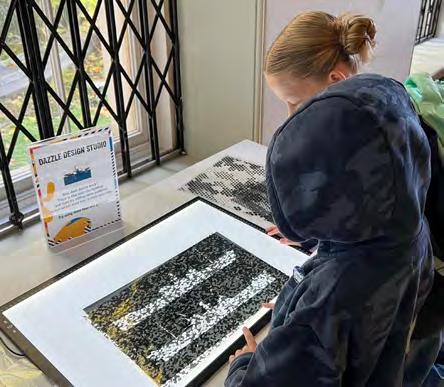
4 out of 5



In half term we had a day out to London. We went on the train and tube from Aylesbury and visited the Imperial War Museum. It’s only a little walk from the station and is free to get in. Outside they have some giant guns and bombshells. Inside there was lots to do, you could buy a guidebook but they had free trails for children. You could earn a badge for completing the trail booklet. There were lots of cool planes and tanks to see, and fascinating displays. My favourite exhibit was about camouflage and a very interesting tree used for spying! There were different levels with different exhibits available. The Holocaust exhibit is strictly for over 14s but there is loads of information everywhere else! You could even try out an Anderson shelter and a Morrison shelter.
We had an amazing time and I would recommend it!
4 out of 5




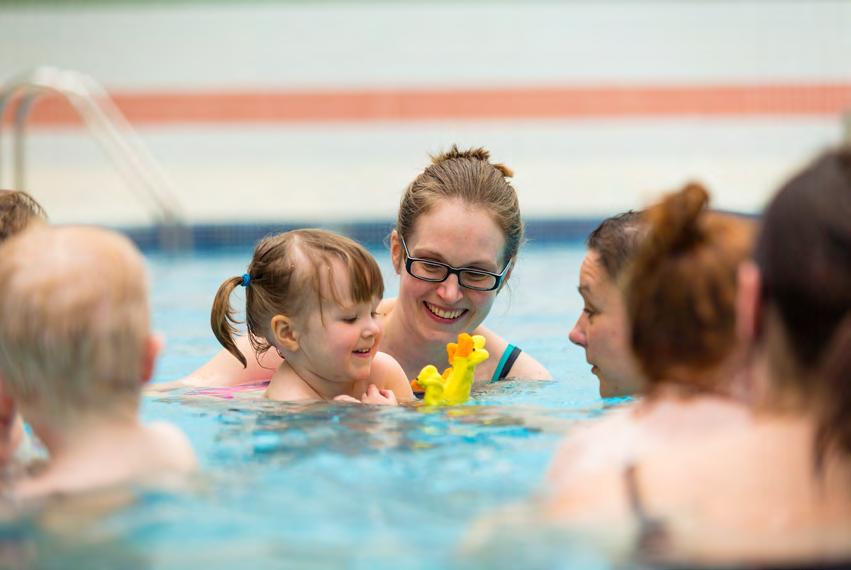
Nothing makes me more pleased than when something new opens up locally, so Chesham Leisure Centre’s soft play was high on my list to visit. The soft play wasn’t too busy when we arrived. We waited a short time for our slot to start and within seconds of being inside my children had kicked off their shoes and raced onto the frame, as we easily found a table to sit and watch.
The bigger frame was both boys focus, with my older tackling monkey bars and a climbing wall while his determined brother raced to catch up. With slides, climbing challenges and abundant hiding spots, there was something for both of their ages. There was also an area dedicated to toddlers with a mini trampoline in it and lots of soft stacking bricks. My toddler explored the sensory room, with mirrors and lights which could be turned on and off it was very relaxing. My eldest tried to try out the Interactive Tag but the machine didn’t seem to be working.
The soft play didn’t disappoint in both tiring and exciting the children and was fully enclosed within a large room with several chairs and tables for adults.


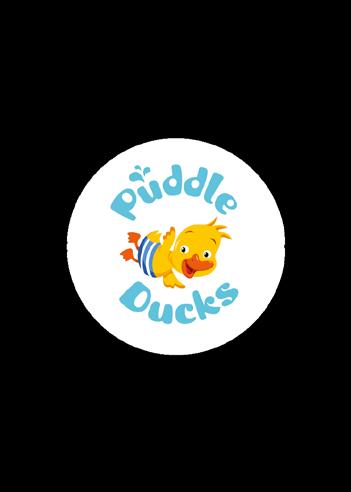

Location: Chesham, HP5 1BB
Note: Bookings are taken by the Everyone Active app. There are vending machines within the building but no café area. Sessions are 1 hour.

A visit to Bojangles was quite different to what I had anticipated. It was very much an experience, a lovely treat that I am keen to repeat.
I took both my youngest son and my mum with me to enjoy a session and it really didn’t disappoint. We were warmly welcomed and led through to the back of the café where a table waited us. The café was beautifully decorated.
We chose two Christmas decorations to work on and purchased some gorgeous cakes and some tea. It was explained to us how to get the best out of our painting experience and there was a wide array of paints, brushes and stencils to choose from. My toddler was surprisingly enthralled to paint and with our session two hours long it was plenty of time to paint the decorations, enjoy the cakes and watch him race around the small soft play area. It was really relaxing to weave our own artistry onto our decorations and the ambience of the café itself.
Location: Amersham, HP79NQ
Note: Pottery items start from £6 to paint plus studio fee. The last Friday of every month, Bojangles waive their studio fee.


Booking is essential to avoid disappointment. Parking isn’t the easiest if busy, however there is road parking and a public car park a short walk away.

DJs Soft Play was huge and hosted a variety of enthralling activities. There were dedicated areas for under 2’s, under 4’s and then 4+. The over 4’s frame was the largest and boasted many different slides, nets, monkey bars and climbing challenges. There was also a big ball pool, the pool having tubing that sucks up balls before dropping them all over you, but unfortunately it wasn’t working during our session, although the soft play was large and varied enough that it made little difference.
The under 4’s frame had a cluster of ride on cars in it and a smaller slide as well as its own frame. It also had a fab set of stacking blocks which kept my toddler busy as he directed me to fit parts with him. The toddler frame was bright and colourful and held a small sensory room which housed lights to capture a little ones’ eyes.
There was a very sweet imaginative play area for dressing up and pretend play. At busier times, go karts are also available for an additional charge. It was a thoroughly enjoyable session and we were well exercised and relaxed by the end.
Location: Jarman Park, HP2 4JS.
Note: Parking is abundant and free for a specified time, which is longer than a single soft play session. Check times and restrictions when using Jarman Park as parking enforcement does happen. Soft play sessions are for 2 hours.








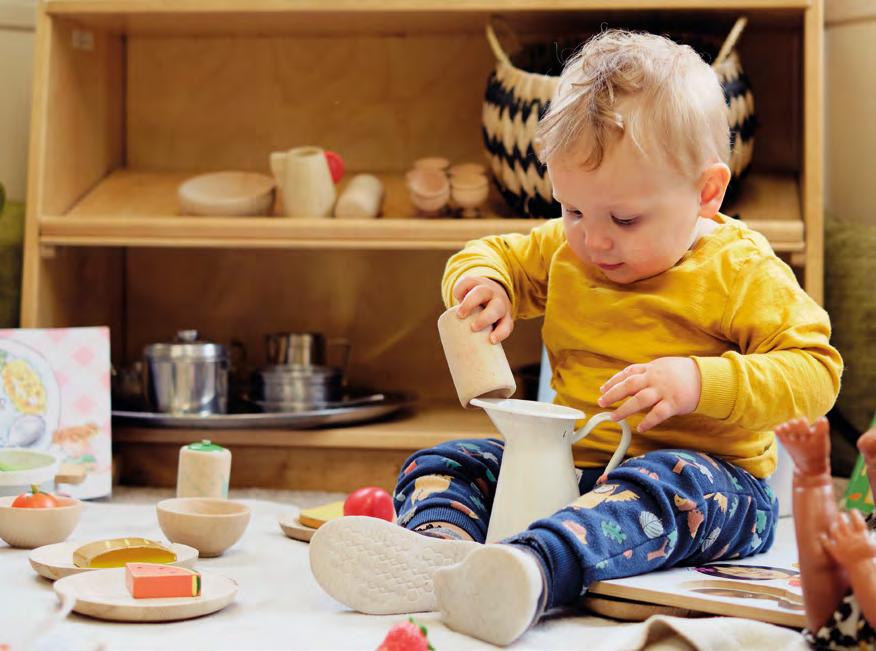
Early language development is incredibly important and sitting down to read with your child gives them a big advantage. Here are my thoughts on the how’s and why’s of shared reading.
Shared reading is so much more than simply reading books aloud from start to finish. It’s powerful as an interactive experience, creating a conversation along the way. Evidence suggests that asking children lots of open questions about books can really boost language skills. Exposure to new words builds their vocabulary and the more they hear spoken language, the more easily they can use it themselves. The earlier you start, the better their reading ages will be at school. Research has demonstrated how shared reading protects against a lot of language difficulties and delays. It can even predict how successful children could be as adults in terms of income.
Parents, grandparents, carers or sibling will each have their own reading styles- and that’s a good thing. Find the flow that comes most naturally to you, making the experience more interactive as you go along.
Picture books are a good start
Picture books with few or no words are great starting points. A good example is Hug by Jez Alborough, which simply repeats the word ‘hug’ on each page. It’s then down to the adult to create a story around this, starting a conversation with the child. Talking with them about what they see and what they think about the story naturally involves using a mix of words and grammatically structured sentences. The book becomes a prompt for children to express themselves.
Reading the same book over and over
I hear this a lot from parents: ‘My child wants to read the same book over and over again.’ As an adult, what do you do? Do you read the book for the thirty fifth time this week
or encourage them to read something else?
A recent study suggests that reading the same book repeatedly can help with a child’s memory, in terms of building familiarity with particular words. The biggest challenge is your stamina - knowing it’s all in a good cause might help here!
When and where?

When it comes to shared reading, little and often is the way forward. You don’t have to sit down and rigidly read with your child for a set hour at a time. Five minutes here and there is just as useful, particularly when it comes to keeping them motivated.


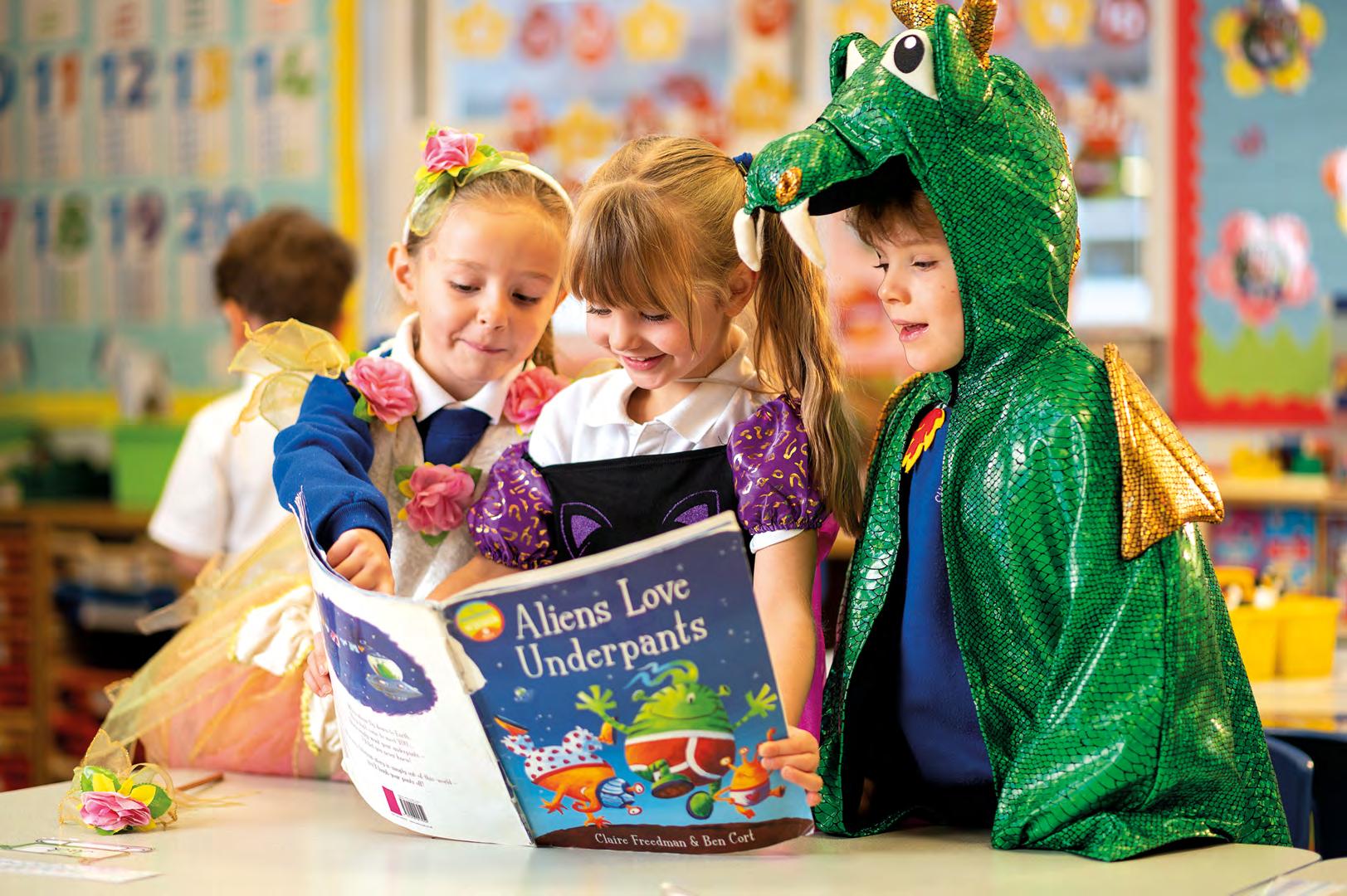
Fit reading around what works for you and the structure of your own lives. You may well choose a time towards the end of the day when you’re settling them down for bed. But for a lot of people, that isn’t successful because, by that point, their child is too tired to engage properly. Remember it doesn’t have to be bedtime. Pick a different point in the day. Or grab five minutes when you’re travelling on the bus together, for example.
And finally…
Do it yourself! When your child sees you reading and clearly enjoying it, they will want to copy you. This will help them develop a habit that will open up a lifelong world of adventures and learning.
Dr Jamie Lingwood is a Lecturer in Psychology at Liverpool Hope University (hope.ac.uk/psychology) and belongs to the ChildLab research group, a group of psychologists and educators who are interested in researching how children develop and grow.


 By Jemma Zoe Smith
By Jemma Zoe Smith
There are many different strategies which enable someone to ‘be the best they can be.’ In the adult world, the two commonly debated methods are coaching and mentoring. Whilst they are often discussed together, they are in fact two different concepts. As a mentor to teens and tweens, I have often found myself wondering if mentoring would work for primary aged children?
Some in the field of education may feel that mentoring is not appropriate for children of this age. How can you mentor someone who is just getting to grips with learning, formulating their ideas and their opinions?

However, mentoring can be very effective in instilling a love of learning, enabling open discussion and promoting self awareness at an early age. At its most simple, a mentor is ‘an experienced person who advises and helps somebody with less experience over a period of time’ 1. This period could be whilst a young child gets used to a new classroom or a change in family circumstances.
A mentor offers advice, using the benefit of their experience but always taking into account the fact that the child is an individual and that their background and experiences in life may be very different to that of the mentor’s.


Mentors do not have to be adults - instead, mentoring can be a peer-to-peer setup, with volunteer opportunities galore for schools to trial peer to peer encouragement and support techniques. Mentoring is about helping a child to recognise their true qualities and abilities, rather than moulding them


into something that is not true to themselves. If a child is interested in sports, a good mentor will connect with them, using this interest, even if it isn’t necessarily a shared interest between them. A mentor guides but also allows a mentee to discover who they are.
Having a mentor or studying in an environment such as a classroom with a mentoring ethos can help children to get to know themselves and make sense of the world in which they find themselves.
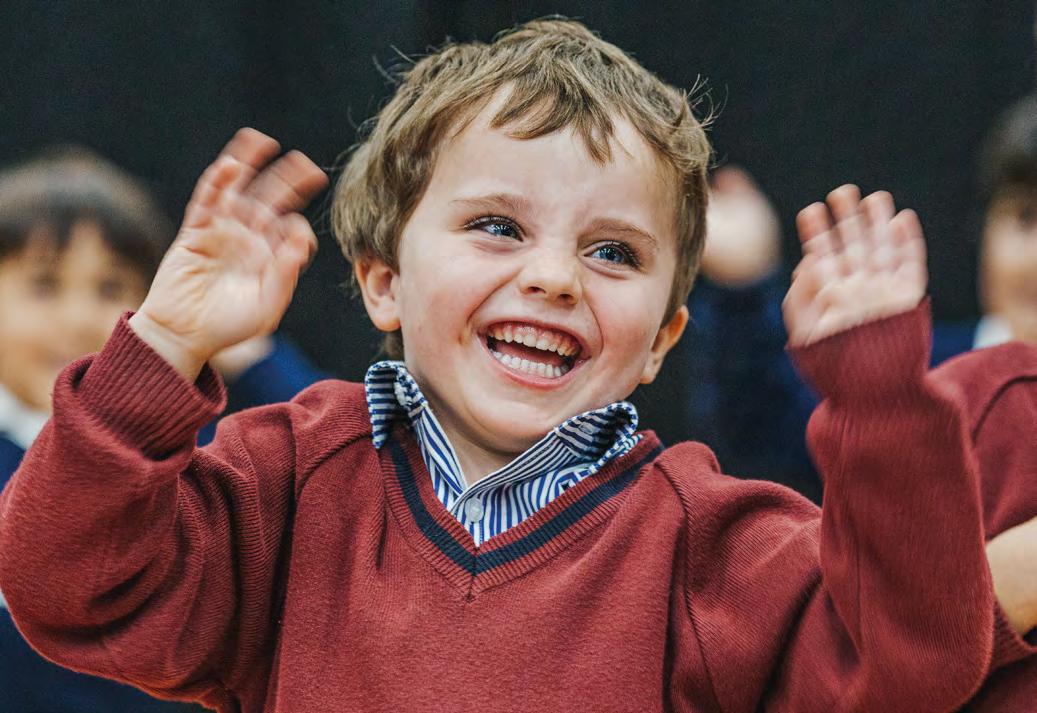

In the age of social media, with an ever-increasing number of platforms telling children who they should be, I think mentoring is more important than ever to help children peel back the curtain and feel as if they have the permission to be their own person.

 By Jessica Joan
By Jessica Joan
In May, Year 2 (KS1) and Year 6 (KS2) pupils will take their SATs exams. Yet, from their very first day at school, children are being trained to be able to perform in preparation for these assessments.
So much work goes on behind the scenes in other years to get children ready and when it comes to the year in which they take their SATs, teachers are under pressure for them to do well.
To prepare for the exams, your children will be doing lots of maths, reading and writing at school, intertwined with other subjects so that they are consistently practising those skills. Sometimes this means that other foundation subjects are deemed ‘not as important’ and additional maths and English lessons are squeezed in instead.
So how can you ensure your child does well in their SATs?

Your child’s school will more than likely be sending home maths, English and reading homework in preparation. It can be difficult to make your child do homework, especially when they have been worked so hard during the school day; however, it’s an important support in preparation for SATs so anything you can do with your child can really make a difference to how they perform.
Providing your child with any opportunity to read, write and do mathematical calculations will be massively appreciated by your child’s teacher!
In addition, you can download and look at past SATs papers from previous years (sats-papers.co.uk) to get an idea of what your child will have to do. There will be some things that have changed since you went to school so ask your child to show you how they do things - they will relish this opportunity!
Likewise, you can always speak to your child’s teacher who will happily show you how you can support your child’s learning at home.
As well as these things, ensuring your child eats well and stays hydrated will support their minds and bodies during the school day. Similarly, creating a good bedtime routine will mean your child gets a decent night’s sleep and has the brain power to be ‘on the ball’ throughout the school week.
Jessica Joan is a primary school teacher from Worcestershire with a ten year teaching career. After experiencing burn out, she set up as a Work/Life Balance Coach for stressed out teachers and launched her Happy Teacher Course. Find out more at: jessicajoan.co.uk
Known for its bespoke, nurturing style and brilliant academic results, Gateway School is a non-selective co-educational independent school for children aged 2-11. We would love to show you all that Gateway School can offer you and your family. Call Helen on 01494 867806 or visit gatewayschool-bucks.co.uk to book a visit.
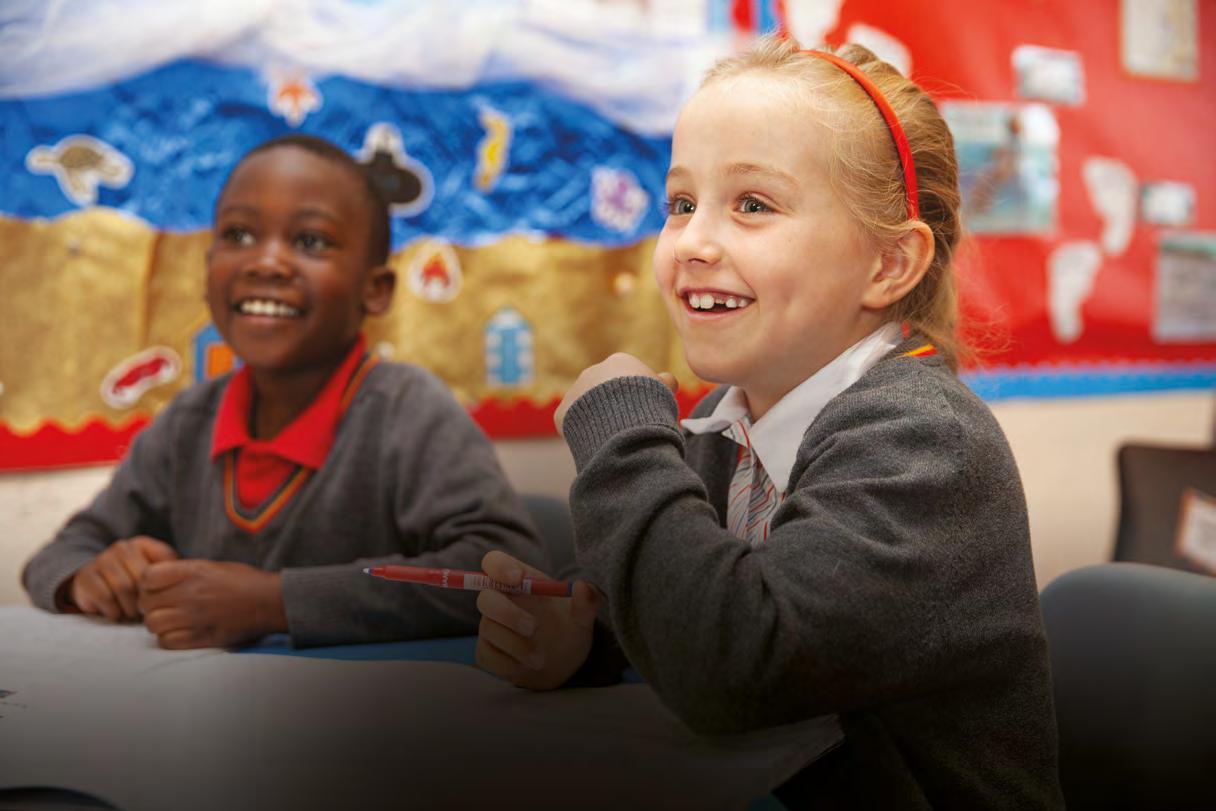
The government previously announced its plans to scrap KS1 SATs (Year 2) after the introduction of the Reception Baseline Assessment (RBA) which began in September 2021 and is taken by all new primary school pupils. However, it has since been decided to make KS1 SATs (Year 2) optional for schools from September 2023 instead.

The RBA is usually done with a teacher in an informal setting during a child’s first six weeks of school. It is an activity-based assessment conducted via a number of practical and interactive tasks. There have been pilots done all over the country and the validity report confirms that this new assessment provides an ‘accurate’ starting point from which to measure the progress a child makes in primary school.
To my knowledge, this change is welcomed amongst primary school teachers across the country as it limits the amount of pressured standardised testing that takes place during a child’s early school years. Primary school is a time for children to explore their learning through play and their own curiosities.



Siblings. One minute they are the best of friends, the next minute they’re at each other’s throats. Why can’t they just get along?
The Parenting by Connection approach developed by US charity, Hand in Hand Parenting recommends listening tools to help parents when there is conflict between their children.

Some key understandings of the approach are that children are at their best when their ‘connection cups’ are filled and they’ve had a chance to offload any difficult emotions with a caring listener.
Any sign of harshness from one sibling to another can be taken as a sign that the child is not feeling connected or relaxed enough to function properly. The rational part of their brain is off-line.



Avoid shouting. Yelling at an off-track child just frightens them more, making it more likely that they will continue to be unable to act thoughtfully.

Limit your words and step in calmly. Offer eye contact and gentle touch. Move in to prevent injuries if things get physical.
Look for a mood shift. Our brains communicate with each other simply through presence. When you are calm, your child’s brain will detect safety and connection and they may burst into healing tears, erupt into a tantrum or even offer an authentic, unprompted apology.
Listen to any big feelings with warm presence Good listening is enough. Very few words are needed as your child deals with difficult emotions.
Soapbox time! Set up an opportunity for each sibling to rant and rage about the other (away from any other siblings) and to fully express all of their frustrations. Listen well, acknowledge feelings. Resist the urge to counter or fix these feelings, just let them run.
Build your connection with each child. Fill up your children’s ‘connection cups’ with individual attention. A regular, really intentional five minutes of warm focus on a child can make all the difference.

Become a detective. Notice the times your children are most at odds with each other and increase your connection with them.

Increase physical play. Games where siblings get to unite against parents are particularly good for rivalry (balled-up sock fight anyone)?!
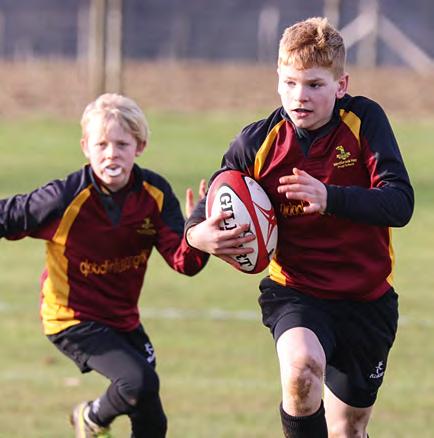
An essential part of parenting is finding new activities to keep your children
When they’re around six to eight years old, they have probably learnt to read on their own, so it’s important to keep stimulating their skills, helping with new words and to speak properly.
Childcare and education experts at Little Ones London have shared seven activities which will stimulate your child’s brain and cognitive skills, combining educational purposes with play time.
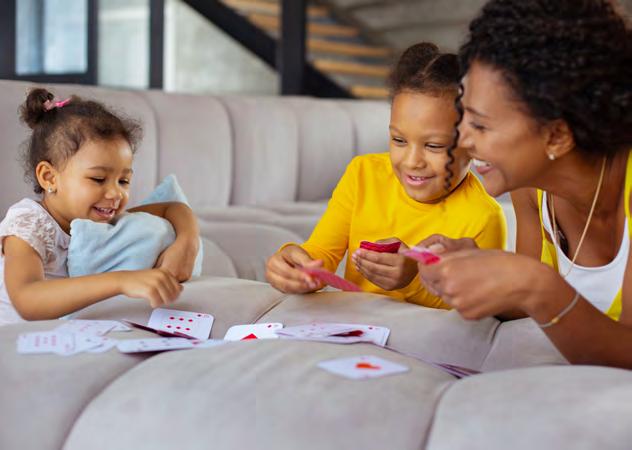
Listening to others, together with keeping the concentration necessary to do so, is essential for your children to learn. Because of this, listening games are the best way to teach them to listen first and react later. A few games of this type can be ‘Simon says’, with more complicated instruction than basic commands, and the ‘Yes/no’ game, where they must answer simple questions without ever using the words “yes” or “no” encouraging them to think of alternatives such as “correct” and “I don’t believe so.”
Spending around 15-minutes every few days with your child teaching them tongue twisters is another way to efficiently improve their speech and memory.
There’s no better way to teach your child to follow instructions while having a lot of fun together. Just choose a simple recipe with them and involve them as much as you can in the process. You can even make an event of it that they can look forward to, like ‘Baking Fridays!’

Letting your child move around the house, maybe even inviting some of their friends over, is never a bad idea. You can organise a Treasure Hunt around your home, making up simple clues for them to read and understand to get to the final prize! A way to stimulate their interest even more is to dress up like pirates or adventurers for the perfect role play!
Regardless of what many might tell you, letting your child learn how to use technology that they will eventually use every day for basic tasks is essential. This does not mean leaving your children for hours with a tablet, but rather teaching them to use basic communication skills like making phone calls or video calls to improve their skills, teach them how to start and end a conversation and be polite over the phone.
These can range from karaoke night, having your child and yourself try and learn as many lyrics as they can and then try to sing without reading, to ‘Kim’s Game,’ which consists of asking your child to choose a few objects around the house to put on a tray. You will then cover the tray and ask them to remember what they put on it.
Sometimes children will face difficulties in their every day life which they won’t be able to express properly, especially when they feel embarrassed or put on the spot. Asking them to keep a diary is the most efficient way for them to express their feelings freely and in their own time and way. This will not only teach them that expressing feelings is all right but will also improve their writing skills.
Pre-Prep & Prep Open Event: Saturday 25 February. Book online: berkhamsted.com or email: admissions@berkhamsted. com
Chesham Prep
Wednesday 1 March and Saturday 4 March, 9.00-11.30. Register online at: cheshamprep.co.uk/open-day/ Chesham, Co-ed 3-13yrs.
Gateway School & Preschool
Monday 30 January, 9.30.
To book, please call: 01494 867806 or visit: gatewayschool-bucks.co.uk/ admissions
Great Missenden, Co-ed, ages 2-11yrs.
Heatherton
Early Years Stay and Play: Friday 10 March. Book online: heatherton.com or email: admissions@heatherton.com
Lockers Park School
Open Morning: Saturday 18 March.
Early Years Stay & Play: 10 February and 10 March 9.30-11.00. Boxmoor, Boys, 4–13 yrs Visit lockerspark.co.uk to book.
Maltman’s Green School
Open Evening (Year 3 entry): Tues 10 January, 3.30-6.00. Open Morning (All Years): Friday 3 March, 9.30-11.00. Book via their website: maltmansgreen.com or email: registrar@maltmansgreen.com Gerrards Cross, Girls 2–11 yrs.
The Beacon Friday 12 May, 9.00-11.00. Amersham, Boys 3–13 yrs. Pre-booking required online: beaconschool.co.uk/admissions
Thorpe House
Wednesday 15 March, 9.00-11.00. Book your place at: thorpehouse.co.uk Gerrards Cross, Boys 4–16 yrs.
Westbrook Hay: Saturday 4 March, 9.30-12.30. Book your place online at: westbrookhay.co.uk Hemel Hempstead, Co-ed, 3–13 yrs.
Please check school websites in advance of visiting Open Days as most require pre-registration.
What attracted you to The Beacon?
I grew up in Amersham and always admired the Beacon for its sporting prowess and all boys’ atmosphere. Though I have lived locally for many years, back working in Amersham very much feels like ‘coming home’ for me.
What are your memories of school as a child?
I loved being at school. Being part of a community, the humour of the classroom and playground, the innocence of youth but at the same time the accountability and clear success criteria of examinations – they were, and still are, great times.
What was it about the school that made you want to apply for the position? I was very happy at my previous school, Wetherby Prep, but I always felt that the next time The Beacon came up, I would apply. It was all boys, I knew the area and the lay of the senior school land round here and unlike Wetherby, had a car park, playground and an on-site sports field.
How would the students describe you?
I always teach Geography to Year 5 as I need to know those boys when their parents come to talk to me about senior school options for their sons. In all surveys of children, what they want more than anything else from a teacher is for them to be ‘fair,’ therefore I always keep that front and centre of my approach to them. I also know that boys get bored easily if the work isn’t
engaging or challenging enough so hopefully the boys would say that about my teaching.
What do you think are the key skills that children should be mastering at the start of their school journey?
As much as we focus on senior school transition, I don’t think any parent or boy looks back at their time at a school and says, ‘that school was brilliant because it got me into X.’ I think the focus we put on those soft skills: the art of conversation, common courtesy, the ability to speak in public, making solid friendships, learning how to win and how to lose – all these are far more important life skills than school destination or any exam grades.
How do you think a Head can make a real difference to an individual pupil? The Head sets the culture, ethos and atmosphere of a school. They also do all the recruitment and will have a view on what makes an effective educator. These things have a huge influence on a school and all of the children learning there.
How would you describe the ethos of The Beacon?

It’s a very welcoming school first and foremost. There is an innate kindness to this place and a passion for the school as an institution – everyone connected with this school has a pride in their association with it.

What are the qualities of a great teacher?
Fairness, passion for their subject, enjoyment of the company of groups of children, the school environment and doesn’t panic when faced with a problem.
What does being a Head mean to you?
The day-to-day job of being a Head is relatively straightforward. Running a school, talking to parents, staff, teaching children, running the business, none of that is difficult. What is difficult is the burden of responsibility for the education and pastoral development of young people and ensuring the school is successful to maintain the livelihoods of the employees. I never take that for granted and don’t think for any Head that level of responsibility ever leaves you.
Who inspired you to teach?
I enjoyed my time at school and my father was a university lecturer so there was a family connection.
What advice would you give to parents choosing a school?


As it says above, the Head sets the broad agenda. If you like the Head and what he or she says, you will like the school. Try and look beyond facilities – sports halls, swimming pools, music centres, theatres all do the same thing – it’s the quality of the staff that is far more important.
What did you want to be when you grew up?
When I was young, a visit to the one McDonalds in the south of England (it was in Slough) was such a treat and we all had our birthday parties there. I therefore announced to my parents that I wanted to be a ‘chef at McDonalds’. They didn’t offer me any career advice to the contrary, but they’re probably pleased that I have chosen this as a career path.
What are you known for?
Tintin, Lego and Watford FC.
Having worked in the film and theatre industry, what made you decide to turn your hand to writing children’s books?

When I was young, I adored reading, especially books starring animals. To be an author just seemed like The Dream Job! This passion for literature led me into working in the film/theatre industry but the desire to write my own children’s book never went away. It was only when I reached my mid-40’s that I thought, ‘well it’s now or never!’ So, I emptied my heart onto the page and wrote about all the things that truly mattered to me. The result was my debut novel, The Last Bear, which is all about the friendship between an 11-year-old girl and a wild polar bear.
Your books deliver some very important messages on big issues affecting our world today. How would you encourage young readers to make a difference or find their voice in the fight against climate change?
First and foremost, my main goal is to focus on delivering a wonderful, engaging adventure story. Children always spot when you’re trying too hard to be worthy. So, any message is subtly woven through the thread of the book. At the end, I like to leave my readers with an empowering message - a feeling that they can achieve amazing things.
This month Rachel Bailey talks to author Hannah Gold whose first novel The Last Bear was the best-selling children’s hardback debut of 2021. Beautifully illustrated by Levi Pinfold, each of Hannah’s stories deliver an important, heartfelt message on ecological issues and climate change.

My take-home point is always to focus on small changes and to never be afraid to speak up - or roar - for change.
If a whale watching trip inspired your second book, would you consider shark cage diving as research for another story?
Haha I’m not sure I’m brave enough to try shark cage diving! Saying that, I do think it’s important that we write about all sorts of animals, particularly ones often perceived as ‘bad’. At the time of writing this, I’m still not allowed to say what Book 3 is about, but I can reveal that a sneak preview will appear at the end of the paperback version of The Lost Whale! So, watch this space.
Did you set out to write a novel about climate change or did that idea develop once you’d chosen a polar bear as your main character?
The truth is I never set out to write a book about climate change. At heart, I simply wanted to write a book about friendship as I’m fascinated by the often magical relationship between children and animals. It was only when I was researching polar bear habitat, that I realised it was impossible to write a contemporary story about polar bears without referencing the loss of sea ice and the terrible impact this is having on them. It was the same with The Lost Whale. I am utterly fascinated by whales and think they’re one of the most wondrous animals but again, it was hard
to write about them without talking about the challenges they face.
Are you an avid reader? Do you have a favourite book you wish you’d written?
The love of reading has never really left me and the book I wish I had written is probably Narnia. I do love a portal adventure, especially with talking animals. Would love to write my own Narnia one day - but with a hopeful eco twist!
The Lost Whale, Hannah’s second novel illustrated by Levi Pinfold, is out in paperback in February priced £7.99.

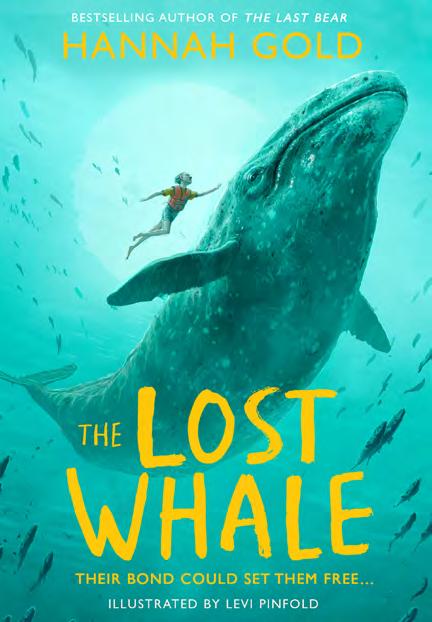
Are you looking for a new activity for your children to try? Or perhaps they have a keen interest in music, sport or performing? Whatever their hobbies, we have a great choice of local clubs and classes to suit everyone throughout the Chilterns.
When you call, please don’t forget to say you saw them in Families Chiltern magazine. ☎☎


Weekend Multisports classes held at Dr Challoner’s High school.
Little Sporties: ages 4 & 5.
Primary Class: ages 6 - 11
Sports Leaders: ages 12 - 16. 18 sports a year plus weekly team building challenges. All enrolments include a two-week trial.
Join today at: < multisports.co.uk

Kids will have a blast building video games and developing coding skills on a proven curriculum. Learn at your own pace on a flexible schedule! Start anytime in the year. Drop-in at your convenience during weeknight and weekend hours. Scan code on the opposite page for a free session. Venues in: Aylesbury and High Wycombe. T: 01494 623125 < codeninjas.co.uk
Berkhamsted Gymnastics Club have spaces available in their fun, recreational gymnastics classes throughout the week for children aged 5+ with fully qualified British Gymnastics coaches. They have a purpose built facility and are looking forward to welcoming your child.
E: membership@ berkhamstedgymnastics.co.uk < berkhamstedgymnastics.co.uk

At TISKA Karate, children and adults alike learn the essentials of etiquette, respect, self discipline, self awareness, confidence, fitness, and self-defence.

Photograph of their youngest Black belt, 8 year old Tyler Yamamoto.
Contact: office@tiska.com for further details of your 1 month free trial.
Award-winning Music classes, 3m-5yrs. Amersham, Beaconsfield, Gerrards Cross & Marlow E: amersham@monkeymusic. co.uk ☎ 01494 716861
Aylesbury, Aston Clinton, Haddenham, High Wycombe, Princes Risborough, Tring, & Wendover. E: aylesbury@ monkeymusic.co.uk ☎ 01494 819138
Berkhamsted, Chesham, Hemel & Rickmansworth. E: berkhamsted.rickmansworth@ monkeymusic.co.uk ☎ 01753 889481 < monkeymusic.co.uk
Perform weekly drama, dance and singing classes. Confidence-building drama classes for 4-7s and 7-12s. A unique mix of fun drama games, dance and singing specially designed to boost confidence, communication, concentration and coordination.9 120 E: enquiries@p. uk/try
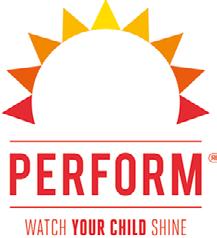
To book a FREE class visit: < perform.org.uk/try
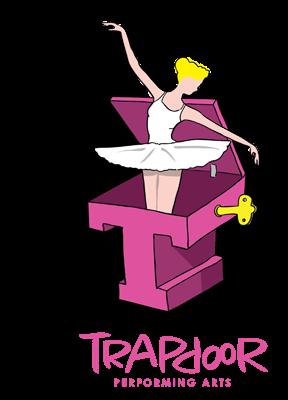
Acting classes with West End actors and TV professionals. Musical theatre and dance classes also on Saturdays. Act, dance and sing in separate classes for pre-school, infants, juniors and teens across all disciplines. Celebrating 100% pass rate in LAMDA and IDTA examinations year-on-year.
☎ 01494 876487 < trapdoordrama.com

A place where shy children blossom and outgoing children sparkle. They give their students the opportunity to grow and express themselves through weekly dance and drama classes, stage shows and exams.
Sign up for a free trial today and see how Step to It can benefit your child. ☎ 07743 065766
< steptoit.co.uk
If you’d like a listing for your club, class or activity in our directory, please contact us today.
Call: 01296 586586 Email: editor@familieschiltern.com




Honestly, cracking open the frozen spuds on Christmas morning was NOT cheating. It was efficient, it was easy and I’m addicted. So, for 2023 I’ve decided to pull the emergency cord and deploy some new life hacks. According to my darling daughters, YouTube has solutions to every problem so I’ve gone online to look. Happy hacking!
By Ellie Malt
If batch cooking can work for food, can it work for our social lives too? Organising and hosting lots of individual playdates is timeconsuming so I’m inviting lots of friends around for one mega playdate. It’s short-term pain for long-term gain. Maybe we’ll get lots of invites in return?



I’m skipping the part where I sift through everything I own. Instead, I’m targeting three big ticket items; a pile of wood which has been patiently awaiting a DIY project, clothes put aside for mending two years ago and some electricals I intended to sell on eBay last year. It’s time to bag them up and get to the recycling centre.
Every time the admin needs to be tackled, it really does create a general fuzz of panic. Just where is that important email from school? Scouting around on the internet I found an excellent twenty-minutehigh speed solution inspired by Marie Kondo on YouTube at: https://bit.ly/youtube20mins







Why not inject the fun principles of a video game into any activity? Set tonnes of levels or goals and then lots of tiny rewards for reaching them. Mind still wandering? How about the Apollo wearable clip (apolloneuro.com) that provides a gentle buzz of appreciation after achieving a flow state? We have reward charts for the kids so I’ll have one too. Gold star for me!

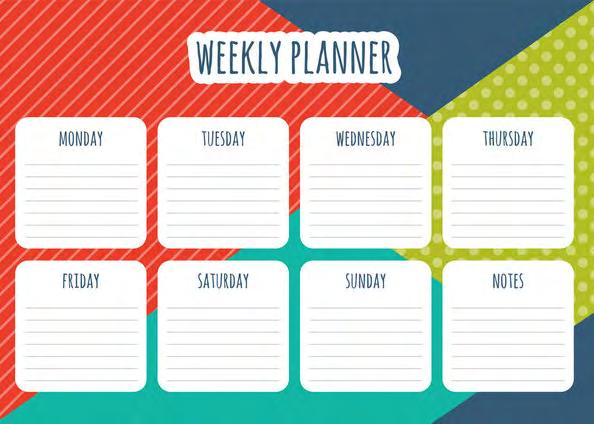
I’ve switched to Google calendar from the Apple version. I find it clearer plus I can set a reminder for each task I don’t have time for on a particular day. If that doesn’t work, I’m going back to a good paperbased planner. I’ve got my eye on the perpetual planner from Moo. < moo.com

I need a break from cooking, I’m hunting down alternatives. Eating out is a cheerfully obvious way out but the cost-of-living crisis makes this backfire. So, I’m switching meals out for take-aways or meal deals. I’ve also found two new veggie options to batch cook for the freezer to give me a cheap night off.
This is where the number one life hack on lifehack.org can help. The ‘prioritisation matrix’ means placing all your tasks into one of four zones: do, schedule, delegate, eliminate. Eisenhower came up with this strategy for the Allied Invasion of Europe. Is that so different from running a family? Anyway, Europe was successfully liberated so perhaps it will work for me. Free template at https://bit.ly/prmatrix
For kids, teens and adults. It’s never too late to smile.

Every New Year we are inundated with health, fitness and self-improvement messages. Often, if we do decide to challenge ourselves and make a change, we don’t feel adequately supported and quickly lose motivation. One way of addressing this is to take on a new challenge as a family. Not only do you all have to get up off the sofa but you get to spend quality time with each other too!
In this stressful world, taking time to ‘just be’ is so important. Try some relaxing yoga and meditation every evening for just five to ten minutes, for a month. Insight Timer (insighttimer.com) is a free meditation app, packed with different tracks and exercises.

We know that spending time in nature is good for you and science backs it up. Challenge each other to name different trees on every walk you go on, see shapes in clouds, identify birdsong; whatever it takes to draw the family into the fresh air.
The RSPB has some great wild challenge suggestions for families, check out fun and learning at: rspb.org.uk.
Coach Martin Sharp (martinsharp.com) suggests a family running challenge. ‘You could keep it simple and see how many laps of the park you can all do. But if you want to make it more exciting you could enter a Color Run (colorrun.co.uk) or a Tough Mudder (toughmudder.co.uk) says Martin. ‘Exercise doesn’t have to be the same thing day-in, day-out; with a bit of imagination it can turn into a grand adventure.’

Make a family chart and log everyone’s goals and achievements.

Bored with your normal meals? Inspire yourselves by researching healthy ingredients you’ve never tried before. Then plan a family challenge to cook meals from around the world. Everyone gets to try something they’ve not eaten before.


If you decide as a family to spend less time on devices, there are some great apps like AppDetox or AntiSocial which can help. Plan family fun as a healthier and more inclusive use of your time.

Cook up your own version of Come Dine with Me, with the aim of making your meals healthier. Social media platforms are full of inspiring chefs whipping up feasts you can copy at home.

Fitness expert Lauren Allen (strongasamum.co.uk) suggests using playing cards to mix up workout challenges. Allocate a movement or an exercise to each suit. For example, clubs is squats, spades is push-ups and diamonds is star jumps. Shuffle your deck and deal out the whole pack to everyone. The number on the card represents how many repetitions of the exercise you need to complete. Set a timer and whoever clears their hand in the quickest time wins the round.
Fitness expert Lauren Allen (strongasamum.co.uk) suggests using playing cards to mix up workout challenges. Allocate a movement or an exercise to each suit. For example, clubs is squats, spades is push-ups and diamonds is star jumps. Shuffle your deck and deal out the whole pack to everyone. The number on the card represents how many repetitions of the exercise you need to complete. Set a timer and whoever clears their hand in the quickest time wins the round.
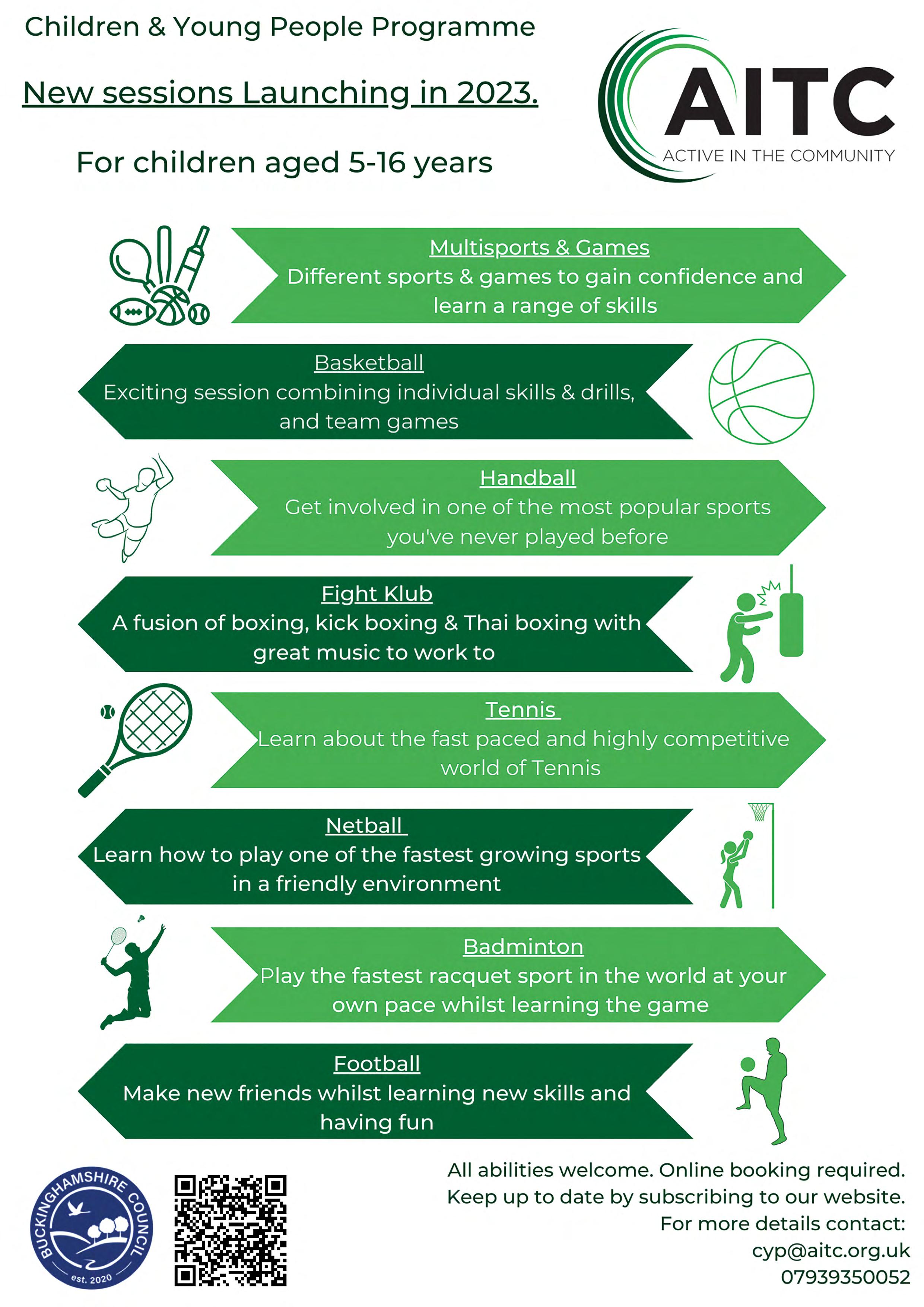
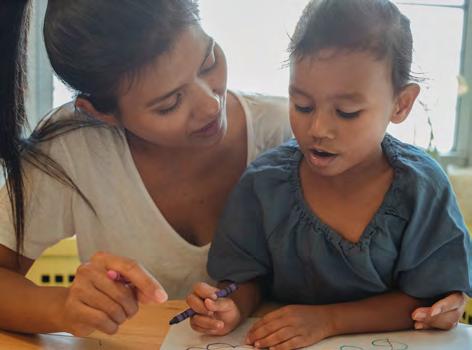
 By Claire Moreau
By Claire Moreau
Parenting is often marvellous and rewarding but it’s also complex, especially if your child is struggling with anxiety and you are unsure what to do next. Families asked Claire Moreau, a qualified mindfulness teacher, to share her tips for lessening children’s anxiety. Don’t be deceived by the simplicity of these…try putting them into practice – they do work!
Children are more likely to express their feelings when they sense that we are fully available. Sitting in an area they pass by when returning from school or a weekend activity and gently inviting them to join us can be a start.
Teenagers might be more reluctant than young children to express how they feel. Letting them know that we’re ready to welcome whatever troubles them might not produce an immediate result, but, in time, it can prompt them to open up.
Top tip: Tell them they have the right to feel overwhelmed or stressed – ‘it’s okay not to be okay.’ Listen intently to them without moving into ‘fix-it mode.’ Sometimes they just need a steady, listening ear.
With little ones, creating a comforting, wind down routine can help (reading a book together, listening to soothing music).
With teenagers, blocking the mobile phone at a set time is recommended. Finally, at all ages, placing hands on the belly, breathing easily and focusing on the breath, following the gentle movement of the belly that rises and falls. Counting the breath to ten (in- one, out – two, in –three, out – four etc) over and over can quieten a busy mind.
Top tip: Whatever their ages, no screens before bedtime
Mobile phones are part of our lives and essential communication devices. Yet the alerts and notifications keep us constantly looking at them and family members often have to compete.
Being fully present with the activity or conversation we’re having with our children - without being distracted by mobile phonesdemonstrates that we value ‘real’ time together over virtual communication with other people and that we are fully available.
Top tip: At mealtimes, get everyone to put their phones away for a set length of time.
The term nature-deficit disorder (NDD) was coined by Richard Louv in his 2005 book Last Child in the Woods. NDD can contribute to many problems, including higher rates of physical and emotional illnesses. The good news is it can easily be reversed. Spending time in nature is easier than we think: village greens, parks, commons and nature reserves abound in the UK. They provide the perfect setting for free family activities: walking, cycling, playing frisbee or racket sports helps lift the mood; watching nature’s life cycle is always a treat.

Top tip: Swap a meal indoors for a picnic, yes, even if it is cold! Nothing beats a good walk or cycle ride before returning home to a hot drink or meal.

Research has found that too much screen time can lead to mental health issues in children, such as anxiety and depression. Most children prefer electronic media to playing and interacting with family and peers, which impacts their social development. Monitor screen time, ensure the content is age-appropriate, communicate with children about inappropriate images and model healthy device habits.
Top tip: Playing board games, reading and listening to music are great alternatives. Ask your kids to help you discover their musical tastes – this can lead to rich intergenerational conversations!
Small steps can go a long way. If they worry about the future, bring them back to the present moment—’right here, right now, with you, all is well.’ Tell them that you love them no matter what. These are both pillars of mindfulness.
Create a family routine that dissolves their worries even if only for a short time - in my family, every other Friday evening, homemade pizza is sacred. We catch up while cooking, then we watch a film together.
Top tip: Empower them by doing something as a family to help the situation they are worrying about – for instance, organise a car boot sale or a family run to raise money for charity.
Claire has over ten years of meditation and yoga practice and three years of experience teaching mindfulness. She is particularly interested in how mindfulness can help parents and children develop well-being and cultivate emotional resilience, kindness and compassion. For more information on her courses, visit: bridgemakermindfulness.com
Children absorb emotions like sponges and if they don’t know how to manage them, they can feel frustrated, powerless and overwhelmed. Overhearing the news or emotionally-charged adult conversation can fuel children’s anxiety. Teenagers can be alarmed by news threads on social media. Besides climate change and Covid, younger generations are now worrying about the war in Ukraine and its potential consequences.
Top tip: Avoid watching/listening to the news with young children; talk to teenagers about the news threads they follow; keep adult conversation amongst adults. Without altogether avoiding sensitive topics, discussions can be held within families in an age-appropriate way.
There are many mindfulness apps/recorded meditations for adults and children which may help them to relax and unwind. However, nothing compares with attending a course with a qualified mindfulness teacher. Such a course teaches key mindfulness skills that help children and adults identify and manage emotions, improve concentration, relax and strengthen inner resources. Parents and children can benefit from simple exercises that help establish a strong mindfulness practice.
Top tip: Children’s courses are only taught in person but many adult courses are now delivered on Zoom so it is easier to fit them around family life.
Happy spring term! Perform confidence-building classes are sure to blow away the winter cobwebs and will help children feel energised and inspired. This term sees 4-7s trapezing and somersaulting into a Circus Adventure whilst 7-12s work on a fun and funky adaptation of Robin Hood, in Outlaw. Imaginations will soar as children work towards a magical performance for family and friends.

Perform is not like other children’s drama schools. Its classes have a special emphasis on child development, using a mix of drama, dance and singing to bring out every child’s potential. Run by experienced actorteachers, Perform classes focus on developing the 4 Cs: Confidence, Communication, Coordination, and Concentration. With all abilities welcome, children can join at any point in the term and will take part in the performance. The only requirement is to get ready to have the best fun of the week! Children are welcome to try a FREE class.
Venues: Amersham, Beaconsfield, Berkhamsted, Chalfont St Peter, Gerrards Cross, Tring and Wendover.

Contact: T: 020 7255 9120 E: enquiries@ perform.org.uk < perform.org.uk/try
Reading not only provides a good alternative to screen time but it’s also relaxing. A 2009 study from the University of Sussex has found that reading can reduce stress by up to sixty eight percent. Just six minutes of relaxing into a good book can lower blood pressure and muscle tension. It’s a great distraction technique.
Top tip: Reading can also become a special family moment—older children can read a story to younger siblings or parent and child can each read a page aloud.

If, despite your best intentions and care, your child’s behaviour or anxiety level becomes worrying, it is best to seek medical advice. GPs can refer a child to a psychologist or occupational therapist with training in mental health.
Top tip: Getting support for yourself while you’re supporting your children is critical. Charities like youngminds.org.uk run a parent’s helpline and provide free advice and support.

We all have those memories of getting messy and muddy as a child but when it comes to our children, it can be difficult to allow them free rein. Yet scientific evidence now suggests young children who are encouraged to enjoy safe, outdoor muddy play will go on to develop stronger immune systems than children who are discouraged from it, leading to better overall health.


In the last decade, over sanitised childhoods have contributed to higher cases of allergies in the western world1. The percentage of children diagnosed with allergic rhinitis and eczema has trebled over the last thirty years.
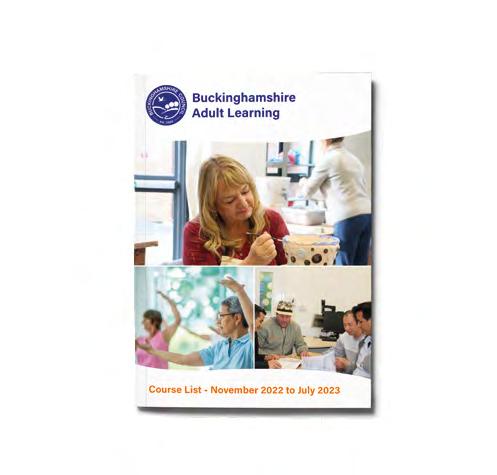






Meanwhile, other studies have also found children who grow up on farms, with easy access to farm animals and the outdoors have a lower risk of developing asthma2 (1,2 https:// bit.ly/JFmud ). The reason behind these findings is an immune system that is exposed to bacteria and viruses when young and becomes strong, meaning it is much less vulnerable to allergies and asthma.















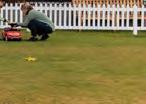


The best way is to get your child outside as much as possible, from as young an age as possible. Touch trees, leaves, grass and mud. Play with sticks, jump in puddles and breathe fresh air. Forest schools are now a popular alternative to traditional indoor nurseries and forest school activities run by Forestry England and the National Trust are increasingly common during the school holidays.
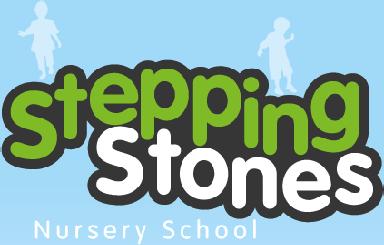
Locate your closest natural play area - playgrounds made from natural materials, some even have options for den building and mud kitchens. Not only are you giving your child’s immune system a boost but being in the fresh air has countless other physical and emotional benefits. Instilling a love of the outdoors from a young age will continue the healthy habit of getting outside.
You can also give young children regular exposure to safe bacteria through mud kitchens and gardening. This helps bolster their immune systems from an early age, contributing to a more diverse range of bacteria in the gut and skin.


The saying ‘a little bit of dirt never hurt you’ really is true!
Recent research has found a direct link between diverse microbes in a child’s gut and potentially chronic conditions like obesity, diabetes and even healthy brain development. If you don’t have access to a garden, consider a local allotment or community farm project where children learn about how our food is grown AND get their hands safely dirty.
Children who grow up with a pet, especially dogs, are also known to have a healthier immune system because of the dirt an animal naturally brings in. Use common sense with this though. Don’t play in muddy areas to which cats or dogs have regular access so you can avoid harmful bacteria your child may not be used to. Always wash hands with warm soapy water.
• Messy and muddy play requires patience and a relaxed attitude – from you!

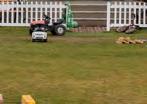

• Don’t put children in their best clothes outdoors; a second-hand puddle suit and old wellies will suffice.

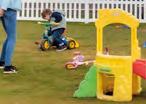

• Don’t wait for a sunny day. If the weather isn’t perfect, remember, you need rain to create that mud.



• Get involved yourself. Just because you’re an adult doesn’t mean you have to miss the fun and it might even help your immune system!






































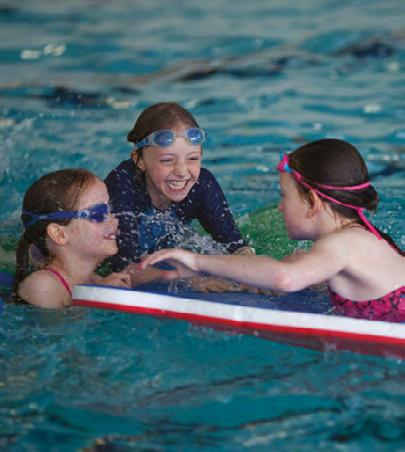
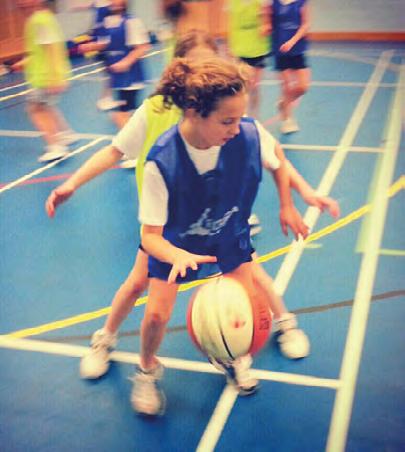
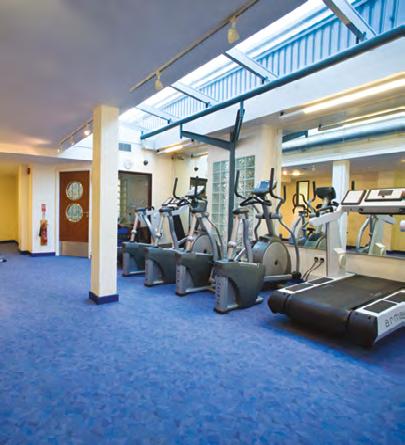
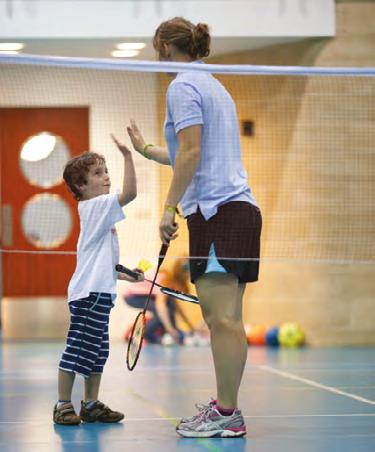
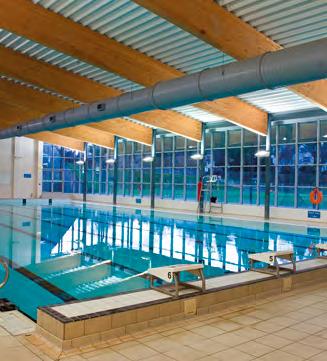

Under the old law, those starting the divorce process would have to prove their marriage had irretrievably broken down based on one of five factors:

Adultery
Unreasonable behaviour
Two years separation with consent
Five years separation without consent Desertion for a period exceeding 2 years
Most divorce cases were based on either adultery or unreasonable behaviour as these were the only two facts that allowed divorce proceedings to start straight away and without having to wait at least two years.
Following the implementation of the new law, spouses can now only start divorce proceedings based on the new ‘No-Fault’ legislation, meaning they divorce without having to blame the other party.
All applications must now be made online and it is now possible for spouses to make joint applications together.
It is hoped the new law will help reduce the emotion and conflict between spouses entering the divorce process, and allow parties to move forward in a more amicable manner, which can help them agree the separating of finances and any child arrangements. It is hoped this will promote a ‘good divorce’ and help protect the interests of children.

As all divorce applications must now be made online it is also hoped this can allow the courts to streamline the process and decrease the likelihood of any delay.The ability to apply online should also reduce costs.
Not really! Those who are on the receiving end of adultery or unreasonable behaviour by their spouse may feel they have lost an outlet to raise this and that their spouse has ‘gotten away’ with their actions. The old factors for divorce however, very rarely had any effect on the split of the finances or other matters.
Can I defend the divorce if my spouse makes a divorce application?
Under the new law, defending a divorce application is very difficult. You can only object to the divorce if you dispute the validity of the marriage or there is a question over the jurisdiction of the court to issue the proceedings i.e. the divorce application should have been made in another country.
How long will it take for my divorce to be complete?
The whole process takes at least 6 months and is split-up into stages. There is a minimum 20 weeks from your spouse acknowledging the divorce application before you can apply for a Conditional Order, confirming you wish for the application to continue. Once your Conditional Order has been granted, you have to wait a minimum of 6 weeks before you can apply for your order to be made final (the ‘Final Order’).
Is there anything stopping me from applying for divorce?
It is still not possible to apply for divorce within the first 12 months of marriage, as it was under the old law.
How do I start the divorce process?
You can either:
Ask a Solicitor to do the divorce application for you. Do the divorce application yourself through the government online portal. Do the divorce application yourself with the guidance of a solicitor.

How much does it cost?
There is currently a court fee of £593 for filing a divorce application. If a solicitor is doing the application for you or providing guidance, there will be additional legal costs. Always seek a quote for this work if you instruct a solicitor.
Once I receive my Final Order, is my divorce complete?
Yes, you will be now be divorced. It is worth noting that the divorce process is completely separate from the process for sorting your finances upon separation. You will need a financial remedy order sealed by the court to prevent any future financial claims from your former spouse. I recommend seeking advice from a solicitor with regards to reaching a financial settlement and formalising any agreement in a Financial Remedy Consent Order. The Final Order also changes the automatic rights you may have to a spouse’s pension in the event of your spouse’s death. Pension sharing should always be considered as part of the overall financial settlement.
If you would like more information about the issues raised in this article or any aspect of family law, please contact Thomas Palmer on: 01442 872311.

The new ‘No-Fault Divorce’ legislation came into effect from April 2022, but what does this mean and what has changed for separating couples? Thomas Palmer, a Solicitor in the Machins Family Team explains how the changes can benefit divorcing couples and families.


WINTER LIGHT Waddesdon Manor, nr Aylesbury. The gardens spectacularly lit up with colourful interactive light installations. Collect a free ‘50 things’ outdoor adventure challenge from welcome pavillion & enjoy the outdoor playground and aviary. Pre-booking required online at: Waddesdon.org.uk
Discover Bucks Museum, Aylesbury. Discover how your amazing brain works in this exciting new hands-on exhibition. Mind-boggling fun for all ages. Check the website for the Amazing Brain programme of events with scientists from Oxford University. Museum open Tuesday-Saturday 10am-4pm. Book online at: Discoverbucksmuseum.org
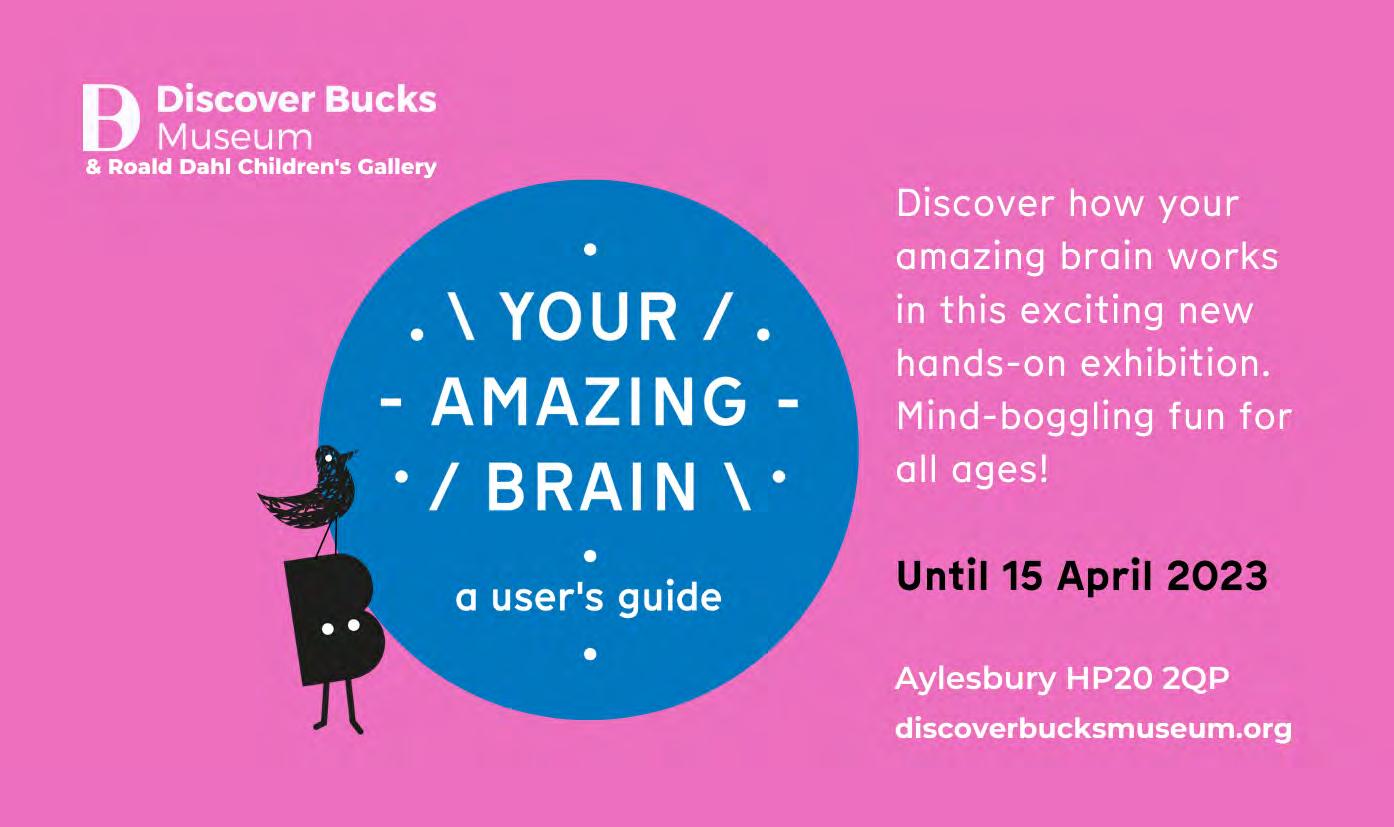
OPEN FOR ALL
Thomley, Worminghall, HP18 9JZ. Children of all abilities can play together in a safe, secure setting, which may be harder in other play environments. 10am-3.30pm. Pre-booking required at: thomley.org.uk
TODDLER TAKEOVER
Rush Trampoline Park, High Wycombe. Term-time weekdays 10am-11am or 11am-12pm.
Saturday & Sundays: 9am (1-hr). Toddler Takeover is for younger kids aged 4 and under only so they can jump to their heart’s content, (an adult must jump with under 4’s). Rushuk.com
SUPPORT GROUP FOR PARENTS OF NEUORDIVERSE CHILDEREN



Open Door, 360-364 High St, Berkhamsted. A support group for parents of neurodiverse children. 7pm-8.30pm, free but donations are welcome. Every second Wednesday of the month. Opendoorberkhamsted.co.uk
DISABILITY FAMILY DAY Thomley, Worminghall, HP18 9JZ. Thomley offer regular days for disabled visitors and their families to come and play, meet new people and find much-needed support. 10am-3.30pm, booking required online: thomley.org.uk
YOUNG RANGERS College Lake, nr Tring. A wildlife club for children aged 8-11 years who love nature and wildlife. 10.30am-12.30pm, 8-12 yrs, £7, booking required. Bbowt.org.uk
SATURDAY SCIENCE CLUB: LIGHT FANTASTIC Science Oxford. Trip the light fantastic at this illuminating workshop about the laws of light. 10-11.30/ 12.30-2/ 3.00-4.30. Ages 5–9, £10 per club ticket, (includes one adult and child) and ticket includes woodland access. Scienceoxford.com
MATILDA THE MUSICAL Elgiva Theatre, Chesham. Based on Roald Dahl’s much loved book. Matilda The Musical comes to the big screen! 1.30pm & 7pm, booking required. Elgiva.com
NATURE TOTS College Lake, nr Tring. Bring your pre-school little ones to explore the nature reserve and enjoy wildlife themed activities. 10.15am & 10.30am, 18 months to 4 years. Booking required, £7 per child. Bowt.org.uk
BEAUTY AND THE BEAST
Elgiva Theatre, Chesham. Join Ballet Theatre UK with one of the most enchanting love stories of all time. 7.30pm, booking required online at: elgiva.com
FAMILY DAYS Science Oxford. Explore, discover & experiment with interactive exhibits. 10am-5pm, 2-hr sessions but woodland access all day. 15-acres of woodland and ponds, pick up an Explorer Backpack and trail map. 3+yrs, £7.50pp, (u3’s free). Book online at: scienceoxford.com
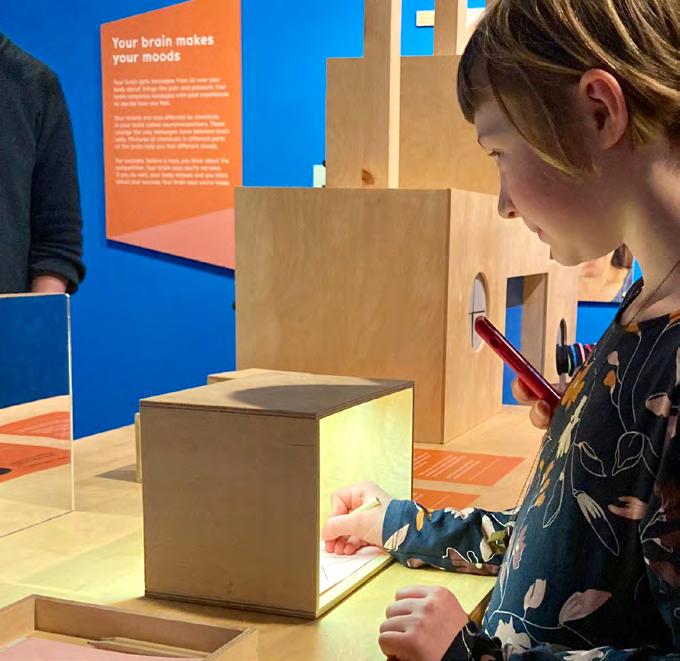
DEMON DENTIST
Aylesbury Waterside Theatre, Exchange St. David Walliams Demon Dentist live on stage! Book online at: Atgtickets.com/aylesbury
DISABILITY QUIET DAY
Thomley, Worminghall, HP18 9JZ. Quiet days are for children with a disability, their family and friends. 10am-3.30pm, booking required at: thomley.org.uk

BUMP AND BEYOND FAIR
Chalfont St Peter Community Centre. Multiple baby, child and family focussed businesses from across the local area are joining together in one place for you to meet. Find out more about local services and classes, hear talks from baby and child experts, win fantastic prizes. 10am-12pm, free. For more information, email: emmahalesfitness@gmail.com
ARTISAN MARKET
Great Missenden High Street
A new market on the first Sunday of every month. A new market on the first Sunday of every month, butchers, cheese mongers, bakers, crafts stalls and more. 10am-3pm, drop-in, free. Coopersmarkets.com
to do, places to go and fun to be had for kids of all ages in
Odds Farm Park, Wooburn Green. Meet newborn lambs taking their first steps in the Little Hooves Lamb Nursery. The knowledgeable livestock team will also be on hand to explain lambing to little ones. Lambthemed trail around the farm and arts and crafts marquee. Daily 10.00am-5.30pm. Book online: Oddsfarm.co.uk/lambwatch
MAGICAL MATILDA
Roald Dahl Museum & Story Centre. Great Missenden.
Head to the Roald Dahl Museum during February half-term for some Matilda fun. Join in with Matilda storytelling, trails and activities. You can also take part in some fabulous family workshops including clay and junk modelling. Pizzaficio will be back by popular demand and serving pizza in the courtyard all week. Roalddahlmuseum.org
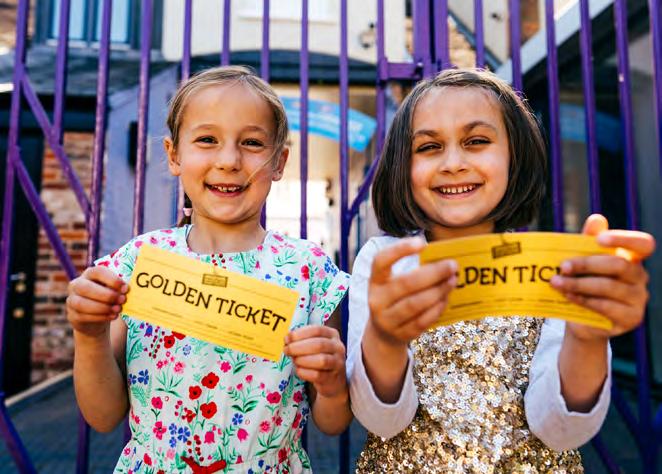
SPRING AT WADDESDON
Waddesdon Manor, nr Aylesbury. Get outdoors in the early spring with the gardens bursting into colour. Download a free ‘Reflect & Roam’ trail from their website or pick up a free ‘50 things’ from their Welcome Pavillion. Enjoy their woodland playground and aviary. 10am-4.30pm. Closed Mon 13 and Tues 14 February. Book online at: Waddesdon.org.uk
RAPUNZEL AND THE TOWER OF DOOM
The Story Museum, Oxford. Theatre of Widdershins present the classic fairy tale of Rapunzel.
An enchanting show for ages 4+. More info and to book visit: storymuseum.org.uk
Colne Valley Visitor Centre, Denham. Craft activity for you to take home and enjoy,
followed by a river dipping session where you can discover the mysterious creatures living in the River Misbourne. 10.30am-11.30am, booking required, £7.06 per child. colnevalleypark.org.uk
YOUR AMAZING BRAIN: A USERS GUIDE
Discover Bucks Museum, Aylesbury. See things differently this half term and come and make your own optical illusions to baffle your brain and boggle your eyes! 10am-3pm, more information at: discoverbucksmuseum.org

Colne Valley Visitor Centre, Denham. For a bit of fun come along and play with clay! Make a pot, bug, rabbit or even a bunch of flowers—you are only limited by your imagination. You will be provided with clay. 10.30am-11.30am, booking required, £7.06 per child. colnevalleypark.org.uk
WOODLAND WONDER
Natural History Museum, Tring. Discover more about the wildlife in our woods and make your own woodland animal to take home. 30-min sessions available from 10.30am, for 5+yrs, £2. Pre-book online: nhm.ac.uk/tring
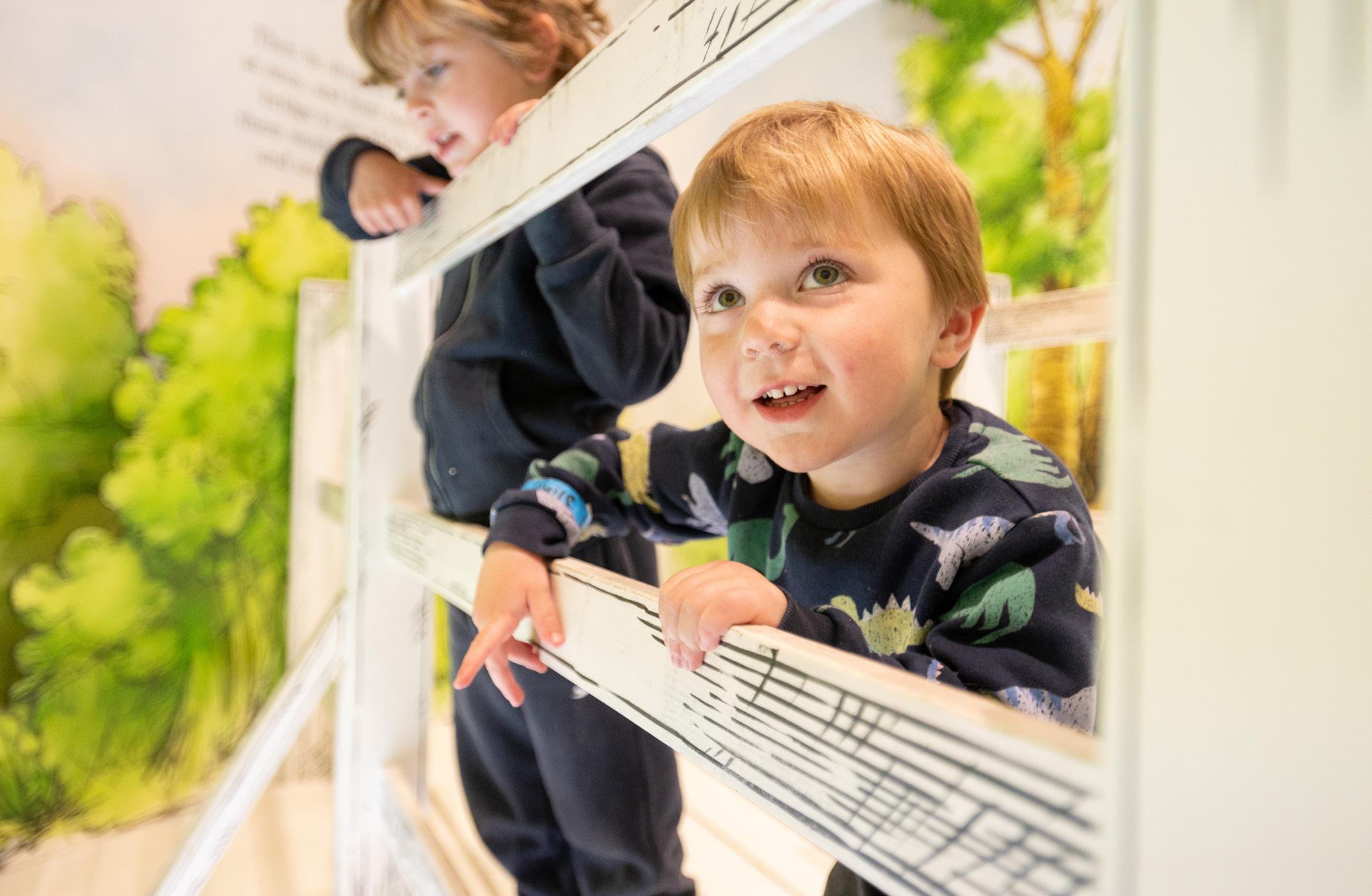
ZOG LIVE ON STAGE
Wycombe Swan Theatre, High Wycombe. Book online at: wycombeswan.co.uk
MONSTER SQUID FUN WITH AARON
The Story Museum, Oxford.
Interactive draw-along event creating weird and wonderful creatures with artist and author Aaron Blecha. Followed by book signing. Suitable for age 8+ years, more information and to book visit Storymuseum.org.uk
The Story Museum, Oxford.
Learn to draw your favourite Star Wars characters with official Lucasfilm illustrator JAKe Detonator. In this amazing draw-a-long event JAKe will show you how to draw your favourite characters from the Star Wars universe, including Droids, Wookies, Bounty Hunters and more. Suitable for age 6+years with adult and ticket. For more information and to book visit Storymuseum.org.uk
The Broadway, Old Amersham. Food and drink from in and around the Chilterns. 10am-3pm. Every third Sunday in the month. Supporting the Chiltern Dog Rescue Society. More at: coopersmarkets.com
PADDINGTON IN QUAINTON
Bucks Railway Centre, nr Aylesbury. New for 2023: Paddington™ will be appearing at intervals during the day. Booking required, bucksrailcentre.org
SING-A-LONG-A ENCANTO
Wycombe Swan Theatre, High Wycombe. Gather la familia, it’s time to celebrate something magical with lyrics on screen, 1pm. Pre-book at: Wycomebswan.co.uk






